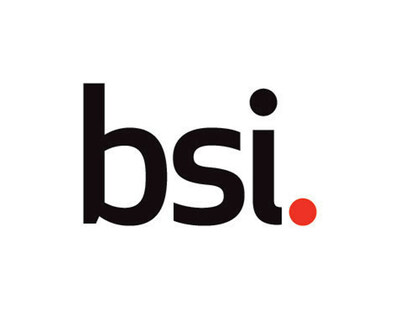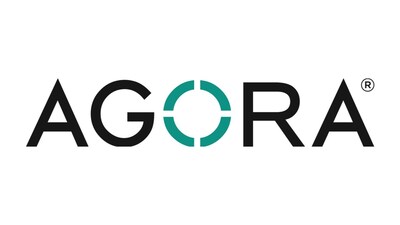Closing ‘AI confidence gap’ is key to powering technology’s benefits for society and planet
Press Releases
Oct 17, 2023
- Three-fifths of people globally want international guidelines for the safe use of AI
- Building trust is essential, as only 26% of Americans would trust AI to do a portion of their jobs
HERNDON, Va., Oct. 17, 2023 /PRNewswire/ — Trust is the key to Americans feeling comfortable using Artificial Intelligence (AI) in their daily lives and realizing its benefits as a force for good in areas including healthcare, food safety and sustainability, according to a new global study from the business improvement and standards company BSI. But Americans remain uncertain about whether they will ever support using AI in other contexts – especially at work. Of those who do not use AI at work (46%), most are split on whether they will by 2030, with 34% answering no and 30% being unsure. The US is similar to the UK, France, Germany and Australia, which are experiencing a greater confidence gap related to AI, while China and India are leading the way in positive public sentiment and engagement with the technology.
BSI’s Trust in AI Poll of 10,000 adults across nine countries identifies global attitudes towards AI’s potential to improve our society, with more than half of global respondents (52%) feeling excited about how AI can shape a better future for everyone by improving the accuracy of medical diagnosis and nearly half (49%) welcoming help from the technology in reducing food waste. Roughly half (52%) say AI can help create a more energy-efficient built environment.
Yet while people are aware of the opportunity for AI, there are low levels of trust globally – for example, just a quarter have more confidence in AI than people to detect food contamination issues, 69% say patients need to be made aware when AI tools are being used in diagnosis or treatment, and 57% feel vulnerable consumers need protections around the usage of AI. Equally, while many of us currently use AI technology (e.g., 57% use facial recognition for banking), only half of us recognize that these technologies incorporate AI. There is a clear opportunity for education to build an understanding of AI and empower people to collectively harness its capabilities.
The research was commissioned to launch the Shaping Society 5.01 essay collection, which explores how AI innovations can be an enabler that accelerates progress. It highlights the importance of building greater trust in the technology, as many expect AI to be commonplace by 2030, for example, in automated lighting at home (41%), automated vehicles (45%) or biometric identification for travel (40%). Over a quarter (26%) expect AI to be regularly used in school by then.
Three-fifths of the respondents globally (61%) want international guidelines to enable the safe use of AI, indicating the importance of guardrails to ensure AI’s safe and ethical use and build trust. Safeguards on the ethical use of patient data in healthcare are important to 55% of people globally.
Engagement with AI is markedly higher in two of the fastest-growing economies2. Respondents in China (70%) and India (64%) already use AI every day at work (the global average is 38%), while 86% and 89% respectively expect their industries to use it by 2030 (62% globally). By 2030, 63% of Chinese people anticipate using AI at home.
Europe and the US are trailing with lower levels of adoption (36% US, 29% UK, 26% France, 30% Netherlands, 33% Germany), while Japan has the lowest of all (15%).
China and India also display higher current use of AI-powered technology, but this is surging globally, with 58% using voice-activated assistants (88% in China) and 62% using curated playlists based on past engagement. Yet globally, people lack awareness that these tools incorporate AI. Nearly half of smartphone users (48%) are unclear they use the technology, along with 46% for voice-activated assistants and 57% for curated playlists.
There is a clear opportunity to harness AI to drive societal progress. Separate BSI research finds that 23% of SMEs and 12% of the public already consider AI to be part of sustainability3. By 2050, the Trust in AI poll finds that three in ten respondents (29%) say a top priority is for AI to help reduce our impact on the environment, 28% focus on it improving medical diagnosis and a fifth (22%) pick AI helping to make society fairer and reducing inequality.
Harold Pradal, Chief Commercial Officer, BSI, said: “AI is a transformational technology. For it to be a powerful force for good, trust needs to be the critical factor.”
“There is a clear opportunity to harness AI to drive societal impact, change lives and accelerate progress towards a better future and a sustainable world. Closing the AI confidence gap is the first necessary step. It has to be delivered through education to help realize AI’s benefits and shape Society 5.0 in a positive way. BSI is proud to be at the forefront of ensuring AI’s safe and trusted integration into everyday lives around the world.”
Many US respondents are already expressing interest in integrating AI at work. Nearly one in five (18%) say a priority is AI making a four-day work week possible for all. Meanwhile, over half globally (54%) say AI can be used most effectively to take on tasks humans don’t have time for, and 53% say with training, they would trust AI to do parts of their job, including the most menial aspects. However, the US has the lowest level of confidence globally in this regard, with just 26% of respondents saying they would trust AI to do some parts of their job.
Craig Civil, Director of Data Science and AI, BSI, said: “The magnitude of ways AI can shape our future means we are seeing some degree of hesitation of the unknown. This can be addressed by developing a greater understanding and recognition that human involvement will always be needed if we are to make the best use of this technology and by ensuring we have frameworks that are in place to govern its use and build trust.
“Now is the moment for us to collaborate globally to balance the great power of this tool with the realities of actually using it in a credible, authentic, well-executed, and well-governed way. Closing the confidence gap and building the appropriate checks and balances can enable us to make not just good but great use of AI in every area of life and society.”
Notes to Editors
Additional information, including the full essay collection, is available here. In this collection of 12 essays, BSI explores the real-world impact of AI through the eyes of BSI experts and newly commissioned research, drawing on the views of 10,000 people in nine countries. We examine the importance of embedding digital trust into AI, the critical role for collaboration – between nations, policymakers, organizations and individuals – to unlock the true potential of AI, and the fast-evolving regulation designed to ensure it is delivered with consistency and certainty.
About the research
BSI commissioned Trust in AI research to explore the views of 10,000 people in nine countries, including the US, UK and Ireland, Australia, China, Japan, France, Germany, Netherlands, and India. The research was independently conducted by Censuswide in August 2023.
About BSI
BSI is a business improvement and standards company, and for over a century, BSI has been recognized for having a positive impact on organizations and society, building trust and enhancing lives. Today BSI partners with more than 77,500 clients in 195 countries and engages with a 15,000-strong global community of experts, industry and consumer groups, organizations and governments. Utilizing its extensive expertise in key industry sectors – including automotive, aerospace, built environment, food and retail, and healthcare – BSI delivers on its purpose by helping its clients fulfill theirs. BSI provides organizations with the confidence to grow by partnering with them to tackle society’s critical issues – from climate change to building trust in digital transformation and everything in between – to accelerate progress towards a better society and a sustainable world.
Jennifer Lipman, [email protected], 07833 437 627
__________________________
1 Society 5.0 is a term that was used by the Japanese Government in the 5th Science and Technology Basic Plan. It refers to a “human-centered society that balances economic and technological advancement to solve society’s problems with super-smart AI data systems.” In this essay collection, we use it to refer to a future societal model that we can aspire to.
2 The International Monetary Fund, 2023
3 Research conducted for BSI by Malvern Insight & Yonder in May 2023. Consumers: Data based on 1,020 interviews (514 UK, 506 USA) with nationally representative sample. SMEs: Data based on 223 interviews (120 UK, 103 USA) with decision-makers within SMEs (up to249 employees).
![]() View original content to download multimedia:https://www.prnewswire.com/news-releases/closing-ai-confidence-gap-is-key-to-powering-technologys-benefits-for-society-and-planet-301958170.html
View original content to download multimedia:https://www.prnewswire.com/news-releases/closing-ai-confidence-gap-is-key-to-powering-technologys-benefits-for-society-and-planet-301958170.html
SOURCE BSI



